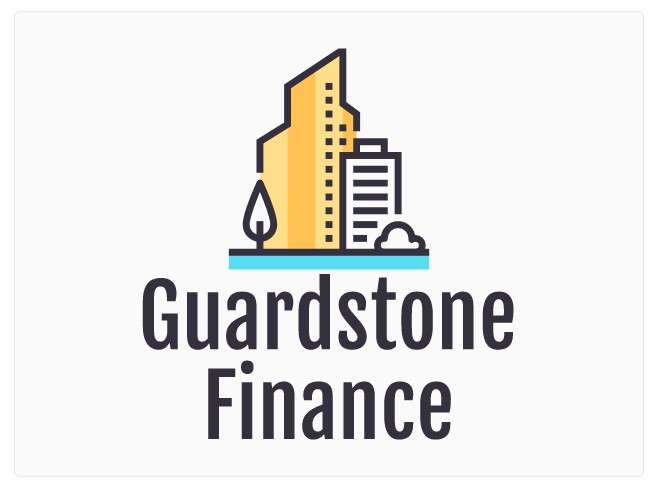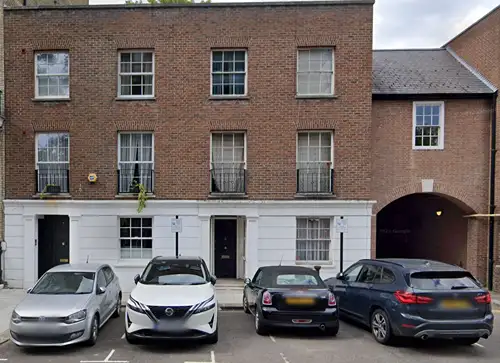
Guardstone Finance is a new direct lender with funding from Hong Kong. They offer a unique specialist debt consolidation mortgage.
- Get a free no obligation 3rd party home valuation
- Up to 90% loan-to-value
- Guardstone Finance is a direct lender, so there are no broker fees or adviser fees
- The rate is 4.21% fixed for life
- No upper age limit
- Interest-only terms available

How does a debt consolidation mortgage work?
A debt consolidation mortgage allows homeowners to consolidate multiple debts into a single, more manageable loan, typically secured against their property. This type of mortgage involves refinancing your existing home loan or taking out an additional loan against your home’s equity to pay off other high-interest debts, such as credit card balances, personal loans, and other unsecured debts.

The primary advantage is the potential to secure a lower overall interest rate than the higher rates typically associated with unsecured debts. This can lead to lower monthly payments and a simplified financial situation, with only one payment to manage instead of several.
However, it’s essential to consider the implications carefully. Extending the repayment term of short-term debts to a mortgage term can mean paying more interest over time, even if the monthly payments are reduced.
Additionally, securing previously unsecured debts against your home increases the risk of repossession if you fail to keep up with payments. It’s crucial to assess your financial situation and perhaps seek financial advice to determine whether a debt consolidation mortgage is a wise strategy for your circumstances.
What are the rates on a typical debt consolidation mortgage in 2024?
The interest rates on a typical debt consolidation mortgage vary widely, influenced by factors such as the borrower’s credit score, the loan-to-value (LTV) ratio, current market conditions, and the lender’s policies.
Generally, rates might be higher than those for a standard first mortgage due to the perceived increased risk of lending to individuals consolidating debt. However, they can still be lower than the rates on unsecured debts being consolidated, such as credit cards or personal loans.
As of my last update, rates could range from around 2% to over 5%, but it’s essential to check current rates as they fluctuate in response to economic conditions and central bank policies. Getting quotes from multiple lenders and possibly consulting with a financial advisor can help you find the most competitive rate for your situation.
Understanding Santander Consolidation Loan and Debt Consolidation
For many homeowners, managing multiple debts can be overwhelming and stressful. One option to consider is debt consolidation, which can help combine various debts into one manageable monthly repayment. Santander offers several solutions, including secured loans and remortgaging for debt consolidation.
Secured Loans VS personal loan
Secured loans involve borrowing money using your home as collateral. This can be a great way to secure a lower interest rate, especially if your credit rating is good. However, it’s important to remember that your home may be at risk if you miss payments. Most lenders offer competitive rates for secured loans, but it’s crucial to compare different mortgage providers and consider the overall monthly payments you’ll need to make.
Advantages of Secured Loans – secured and unsecured debt
- Lower interest rates compared to unsecured debt.
- Potential to borrow a larger amount.
- Longer term repayment options, spreading the cost over many years.
Disadvantages of Secured Loans for existing residential mortgage customer
- Your home may be repossessed if you fail to keep up with repayments.
- You may end up paying more interest over the longer term.
- There may be early repayment charges if you want to settle the loan early.
Remortgaging for Debt Consolidation
Another option is remortgaging your home to consolidate debts. This involves taking out a new mortgage with a different mortgage lender or your existing lender to pay off your current mortgage and other debts. This can often result in a cheaper rate, as mortgage rates are generally lower than those for personal loans or credit cards.
Benefits of Remortgaging – mortgage lenders
- Potentially lower monthly repayments, saving money over time.
- Combining multiple debts into one, making it easier to manage.
- Access to more competitive rates from various lenders.
Drawbacks of Remortgaging
- Higher interest rate if your credit rating has deteriorated.
- Potential costs involved in switching mortgage providers.
- Your home is still at risk if you do not keep up repayments.
Choosing the Right Option
When deciding between a secured loan and remortgaging for debt consolidation, it’s important to think carefully about your personal circumstances and the risks involved. Calculate the total amount you’ll repay, including interest and any additional charges. Speaking to a mortgage adviser can help you make the right decision.
Calculating the Costs
To determine whether debt consolidation is the best way forward, calculate your current debts and compare them to the new loan or mortgage terms. Mortgage advisers can provide guidance on how to calculate these figures accurately. Here are some things to consider:
- The rate of interest for the new loan or mortgage.
- Any early repayment charges on your existing debts.
- The length of the repayment term.
- Whether you qualify for the new loan or mortgage.
Interest Rates Table
| Lender | Rate of Interest |
|---|---|
| HSBC | 2.75% |
| Barclays | 3.10% |
| Lloyds | 3.50% |
| NatWest | 4.00% |
| RBS | 4.50% |
Commonly Asked Questions
Many people have questions about debt consolidation and how it works. Here are some of the most commonly asked questions:
- What is debt consolidation and how does it work? Debt consolidation involves combining multiple debts into one loan or mortgage, usually at a lower interest rate, to simplify repayment.
- What are the risks of debt consolidation? The main risk is that your home may be repossessed if you fail to keep up with repayments. Additionally, you may end up paying more interest over a longer term.
- Can I consolidate my debts if I have a poor credit rating? It’s possible, but you may have to pay a higher interest rate. It’s important to calculate whether this will save you money in the long run.
Steps to Take
If you’re considering debt consolidation with Santander, here are the next steps:
- Calculate your current debts and compare them to the new loan or mortgage terms.
- Speak to a mortgage adviser to discuss your options.
- Submit a mortgage application or loan application with your chosen lender.
- Wait for the outcome of your application and follow any further instructions from your lender.
Thinking Carefully
It’s essential to think carefully before deciding to consolidate your debts. While it can provide a way to save money and manage your finances more effectively, there are also risks and potential downsides. Ensure you fully understand the terms and conditions of the new loan or mortgage, and consider seeking support from a financial adviser.
Exploring Other Options
If debt consolidation isn’t the right choice for you, there are other options to consider. These might include:
- Negotiating lower interest rates or repayment terms with your current creditors.
- Exploring unsecured debt options such as personal loans.
- Seeking advice from a debt counselling service.
Support and Guidance
For those wondering whether debt consolidation is the right choice, Santander offers a range of support services. Mortgage advisers can provide personalised advice and help you navigate the process. Whether you’re considering a secured loan, remortgaging, or another solution, having expert guidance can make a significant difference.
Understanding Equity Release
Another option for homeowners is equity release, which allows you to access the value tied up in your property. This can be used to pay off other debts or for other purposes. However, it’s important to understand the implications and think carefully before proceeding, as it can affect the value of your estate and your eligibility for certain benefits.
Comparing Lenders
When considering debt consolidation, comparing rates from various lenders is crucial. Most lenders will offer different terms and interest rates, so shopping around can help you find the best deal. Santander is known for its competitive rates and flexible terms, making it a popular choice for many homeowners.
Making the Right Decision
Ultimately, the decision to consolidate your debts should be based on your individual financial situation. By calculating the potential savings and understanding the risks, you can make an informed choice. Whether you opt for a Santander consolidation loan or another solution, careful planning and consideration are key to achieving financial stability.
Santander Consolidation Loan
Santander offers a range of consolidation loan options designed to help you manage your debts more effectively. These loans typically come with competitive interest rates and flexible repayment terms, making it easier to combine your existing debts into one manageable payment. By spreading the cost over a longer term, you may be able to lower your monthly payments and reduce your overall financial burden.
Santander Debt Consolidation
With Santander debt consolidation, you can bring together multiple debts, such as credit cards, personal loans, and catalogue accounts, into a single repayment. This not only simplifies your finances but can also help you secure a lower interest rate, saving you money in the long run. Whether you’re considering a secured loan, remortgaging, or another option, Santander provides the support and guidance you need to make the right choice.
Remember, it’s essential to calculate the total cost of any debt consolidation solution, including interest and additional charges, to ensure it truly benefits your financial situation. Speaking to a trusted mortgage adviser can help you navigate the process and find the best solution for your needs.

How does the debt consolidation mortgage calculator work?
A debt consolidation mortgage calculator helps individuals assess the feasibility and financial implications of consolidating their debts into a single mortgage. By inputting details such as the total amount of current debts, the interest rates on those debts, and the terms of the potential consolidation loan, users can get an estimate of their new monthly payment, interest rate, and loan term.
The calculator compares the total cost of existing debts (when paid separately) against the consolidated loan, highlighting potential savings on interest payments and the overall loan duration. It provides a clear picture of how consolidation might affect monthly outgoings, helping users make informed decisions about managing their debt more effectively.
What are the debt consolidation mortgage fees likely to be?
Debt consolidation mortgage fees can vary but typically include application fees, valuation fees to assess your property’s value, legal fees for the conveyancing process, and potentially an early repayment charge on your existing mortgage if you’re refinancing.

There may also be a booking or arrangement fee for setting up the new mortgage. The total cost of these fees can range from a few hundred to several thousand pounds, depending on the complexity of your consolidation and the lender’s specific charges. It’s crucial to factor these fees into your overall cost assessment when considering a debt consolidation mortgage to ensure that the consolidation provides financial benefits when all costs are accounted for.
Can I get an interest only debt consolidation mortgage?
Yes, obtaining an interest-only debt consolidation mortgage is possible, where you pay only the interest on the loan each month and not any of the principal amount borrowed. This option can significantly lower your monthly outgoings in the short term, making it easier to manage your finances.
However, it’s essential to have a credible repayment strategy for the loan’s principal at the end of the mortgage term, such as selling the property, using savings, or another investment.
Lenders will scrutinize your plan to ensure it’s viable before approving an interest-only mortgage due to the risk of the borrower being unable to repay the principal.
What are the debt consolidation mortgage upper age limits?
The upper age limits for debt consolidation mortgages can vary significantly between lenders. Still, many set a maximum age at the end of the mortgage term rather than at its inception.

Typically, this age is between 70 and 85 years, though some lenders may go higher based on the borrower’s income sources, including pensions and investments. The aim is to ensure that borrowers will realistically be able to manage their repayments into retirement.
It’s essential for older borrowers to carefully consider their long-term financial stability and possibly consult with a financial advisor to ensure a debt consolidation mortgage is a suitable and sustainable option for their circumstances.
Is Natwest Debt Consolidation Into Mortgage wise for people in significant debt?
Consolidating significant debt into a Natwest mortgage can be wise for some, offering potentially lower interest rates and single monthly payments. However, it extends short-term debts over a longer period, possibly increasing overall interest paid.
It’s crucial to assess one’s financial situation and consider consulting a financial advisor to ensure this move aligns with long-term financial goals and doesn’t jeopardize one’s home.
Is the Nationwide Debt Consolidation Mortgage the most cost-effective product?
The cost-effectiveness of a Nationwide Debt Consolidation Mortgage depends on individual financial situations and market conditions. This product can manage and consolidate various high-interest debts into one loan with potentially lower interest rates, leading to reduced monthly payments.

However, extending the repayment term of short-term debts to a mortgage term could result in paying more interest over time. It’s essential to compare the total cost of repaying debts separately versus consolidating them, including fees and interest rates.
Consulting with a financial advisor can help determine if this is the most cost-effective solution based on your specific circumstances and financial goals.
Are Lloyds Debt Consolidation Mortgage Rates the lowest rates available?
Lloyds Bank offers competitive rates for their debt consolidation mortgages. However, whether these are the lowest available rates can vary widely depending on individual circumstances, market conditions, and specific lender criteria.
Your rates can depend on your credit score, property equity, income, and other debts. While Lloyds strives to provide attractive options, borrowers must shop around and compare rates from different lenders.
Consulting comparison websites or financial advisors can help uncover the most cost-effective rates tailored to your financial situation, ensuring you find the best deal possible.
Are HSBC Debt Consolidation Mortgage Reviews consistently favourable?
HSBC Debt Consolidation Mortgage reviews are mixed, reflecting various borrower experiences. Many customers have expressed satisfaction with the competitive interest rates, the clarity of the application process, and the customer service received.

However, some reviews highlight challenges, such as stringent eligibility criteria and the time taken for loan approval and processing.
Like any financial product, the suitability and effectiveness of HSBC‘s debt consolidation mortgages vary from person to person, depending on their specific financial circumstances, needs, and expectations.
Prospective borrowers must conduct thorough research, including reading reviews and possibly consulting a financial advisor, to gauge if HSBC’s offering aligns with their debt consolidation goals.
What are the valuation, product and adviser fees for Barclays Debt Consolidation Mortgages?
For Barclays Debt Consolidation Mortgages, the fees can vary depending on the specifics of the mortgage product and the borrower’s circumstances. Valuation fees are charged for assessing the property’s value and can differ based on property size and type.
Product fees, which cover the administrative costs of setting up the mortgage, can either be a fixed amount or a percentage of the loan amount and sometimes there’s an option to add these to the loan. Adviser fees, if applicable, depend on the complexity of the advice and the service provided.
Potential borrowers need to review the Barclays mortgage offer documents and discuss with their adviser to understand the associated costs fully.
Does the underwriting team for my new Santander Debt Consolidation Remortgage check if my apartment management fees are all paid?
When applying for a Santander Debt Consolidation Remortgage, the underwriting team thoroughly checks your financial situation, verifying your current apartment management fees.

These fees are part of your financial commitments and can impact your creditworthiness and the loan risk assessment. Ensuring management fees and other regular outgoings are paid demonstrates financial responsibility, potentially affecting the loan terms offered. It’s advisable to keep all such payments current when applying for any form of new credit or loan to present the best possible financial picture to lenders.
If I have arrears, will this automatically exclude me from Virgin Money Debt Consolidation Remortgages?
Having arrears does not automatically exclude you from Virgin Money Debt Consolidation Remortgages, but it can impact your application. Like other lenders, Virgin Money assesses borrowers’ creditworthiness and ability to repay the loan.
Arrears can be seen as a sign of financial instability. Still, the lender will consider the context, such as the reasons for the arrears, how long ago they occurred, and steps taken towards resolution.
Demonstrating improved financial management and a stable income can help mitigate concerns. It’s crucial to be transparent about your economic history and consult with Virgin Money directly to understand how your specific circumstances may affect your eligibility.
Can I do Skipton Building Society Debt Consolidation With Mortgage even though I am over 65?
Yes, you can consider Skipton Building Society’s Debt Consolidation with a Mortgage even if you are over 65. Skipton Building Society evaluates applications based on a comprehensive view of your financial situation, including income sources, credit history, and ability to repay the loan, rather than age alone. For older applicants, particular attention is given to retirement income and long-term financial stability.
It’s essential to have a clear repayment plan in place, especially as you approach or are in retirement. Consulting directly with Skipton Building Society will provide specific advice tailored to your circumstances and help you understand the options available.
Is a Royal Bank of Scotland Mortgage Debt Consolidation right for everyone in debt, or are some people better off with an IVA or DMP?
A Royal Bank of Scotland Mortgage Debt Consolidation is not a one-size-fits-all solution for everyone in debt. While it can streamline multiple debts into a single, potentially lower monthly payment, it’s not ideal for all situations.

Individuals with smaller debts or those who might struggle with the long-term commitment of a secured loan might find alternatives like an Individual Voluntary Arrangement (IVA) or a Debt Management Plan (DMP) more suitable.
These options can provide structured debt repayment without securing debt against a home, reducing the risk of repossession. It’s crucial to assess personal financial circumstances, the total cost of borrowing, and long-term financial goals before deciding.
Does a Bank of Scotland Mortgage For Debt Consolidation have a rigorous credit check and credit score requirement?

Like many lenders offering mortgage products for debt consolidation, the Bank of Scotland implements a thorough credit check and has specific credit score requirements for applicants. This process is designed to assess an individual’s financial stability and creditworthiness, determining the risk of offering a loan.
While the credit score requirement can be considered strict, it’s in place to ensure that borrowers can manage the new consolidated loan effectively. However, the Bank of Scotland also considers the overall financial situation, including income, existing debts, and the ability to repay the loan, not just the credit score alone.
Will I get a First Direct Mortgage With Debt Consolidation if I have a 450 credit score?
Securing a First Direct Mortgage with Debt Consolidation with a credit score of 450 presents a significant challenge. Credit scores in this range are often considered below the threshold for many traditional lenders, including First Direct, which typically look for financial stability and repayment reliability indicators.
While credit score is a crucial factor, First Direct also considers your financial situation, including income, employment stability, existing debts, and the equity in your property. However, with a score of 450, it may be beneficial to explore ways to improve your credit score or consider alternative debt management solutions before applying.
Can I apply for Metro Bank Mortgages For Debt Consolidation online, or must I visit a Metrobank branch?

Metro Bank offers a flexible approach to applying for Mortgages for Debt Consolidation, accommodating online applications and in-branch consultations. This dual-channel approach allows potential borrowers to choose the best method for their preferences and circumstances.
Visiting a Metrobank branch can provide tailored advice and direct assistance for those who prefer more personal interaction or need specific questions answered. Conversely, the online application offers convenience and efficiency, allowing individuals to apply from home. It’s advisable to review the detailed requirements on Metro Bank’s website or contact their customer service for guidance on which option might suit your needs best.
Are the Coventry Building Society Remortgage Debt Consolidation interest rates very competitive?
Coventry Building Society is known for offering competitive interest rates on its remortgage debt consolidation products, designed to appeal to a broad range of borrowers seeking to streamline their finances. The exact rates available can vary, reflecting factors such as the Bank of England base rate, market conditions, the borrower’s creditworthiness, and the property loan-to-value (LTV) ratio.
Coventry Building Society aims to provide attractive and competitive rates within the market, often adjusting its offerings to remain aligned with or ahead of industry standards. However, what is considered “very competitive” can be subjective and depends on individual financial circumstances and comparison with other lenders’ rates at the time of application.
Prospective borrowers are encouraged to conduct thorough research, including comparisons of different lenders, and possibly consult with a financial advisor to ensure they get a competitive rate that suits their financial situation.
If I want a Yorkshire Building Society Remortgage For Debt Consolidation, will the YBS accept my application if I have a leasehold flat?
Yorkshire Building Society (YBS) generally accepts applications for remortgages for debt consolidation from owners of leasehold flats, subject to specific criteria. These often include the remaining term on the lease, which must typically extend beyond the mortgage term by a specified number of years to ensure security for the loan. Additionally, YBS will assess the applicant’s creditworthiness, income stability, and overall financial situation. The value and condition of the property also play crucial roles in the approval process. It’s advisable to contact YBS directly to get detailed information about their specific requirements for leasehold properties.

What will the Leeds Building Society Remortgage For Debt Consolidation Calculator tell me?
The Leeds Building Society Remortgage for Debt Consolidation Calculator is a valuable tool to provide potential borrowers with vital financial insights when considering consolidating their debts into a remortgage. The calculator will estimate your new monthly mortgage payment by inputting details such as your current mortgage balance, property value, additional debts to consolidate, and the desired new loan term.
It helps illustrate how consolidating debts into your mortgage might affect your monthly outgoings, the interest rate you could be offered, and any potential savings compared to your current debt payments. This information is invaluable for deciding whether debt consolidation through remortgaging is financially beneficial for you.
What are the current Principality Building Society Remortgage For Debt Consolidation Interest Rates?

Interest rates can fluctuate based on broader economic conditions, the Bank of England’s base rate, and individual lending criteria set by the building society. Typically, rates for debt consolidation remortgages might be influenced by factors such as the applicant’s credit score, the loan-to-value (LTV) ratio of the property, and the borrower’s overall financial situation.
Principality Building Society, like other lenders, adjusts its rates to reflect these factors and to remain competitive in the market. It’s best to contact the Principality Building Society directly or consult their website for the most current and accurate interest rates. They can provide specific rates based on your circumstances and the details of the remortgage product you’re considering.
When you consider West Bromwich Building Society Remortgage For Debt Consolidation, what do you think Martin Lewis would think?
While no one can speak directly for Martin Lewis, the founder of MoneySavingExpert.com and a well-respected financial advice expert in the UK, it’s possible to infer his likely approach based on his public advice on debt consolidation and remortgaging.
Martin Lewis often emphasises the importance of careful consideration and calculation before opting for a debt consolidation remortgage. He would likely advise individuals to thoroughly assess the interest rates, fees, and terms of a West Bromwich Building Society Remortgage for Debt Consolidation, comparing these against the costs of existing debts.
Lewis consistently highlights the need to ensure that consolidating debts into a mortgage won’t extend the debt term unnecessarily or increase the overall cost due to higher interest payments over time.
He also suggests considering the security of the loan, as consolidating unsecured debts into a secured loan on your home increases the risk of repossession if repayments are not met. Lewis would probably recommend seeking independent financial advice to ensure that this move aligns with one’s long-term goals and situation.
Would it be wise to get a Nottingham Building Society Remortgage House To Pay Off Debts?
Opting for a Nottingham Building Society remortgage to pay off debts could be wise for some individuals, depending on their financial circumstances. This strategy allows homeowners to consolidate high-interest debts into a single, lower-interest mortgage payment, potentially reducing monthly outgoings and simplifying finances.
However, it’s important to consider the long-term implications, as extending short-term debts over a longer mortgage term can increase the total interest paid. Additionally, securing previously unsecured debts against your home introduces the risk of repossession if repayments aren’t met. Careful consideration, possibly with financial advice, is crucial to determine if this approach aligns with your financial goals and situation.

Does a Cumberland Building Society Remortgage To Clear Debt apply to non-standard construction property types?
Cumberland Building Society’s remortgage products, including those designed to clear debt, are subject to specific lending criteria, which can include property type and construction considerations. While Cumberland is known for its flexible lending approach, non-standard construction properties—such as those made from concrete, timber, or thatched roofs—often require closer scrutiny due to their perceived higher risk and potential for future resale issues.
Applicants with non-standard properties may still be considered, but they should expect thorough assessments of the property’s condition, value, and insurability. It’s advisable to contact Cumberland Building Society directly to discuss the specifics of your property and understand how its construction type might affect your remortgage application.
Is it wise to consider a National Counties Building Society Remortgage To Consolidate Debt if you have stocks, bonds, or other risky assets you could sell to repay your debts?
Considering a National Counties Building Society Remortgage to Consolidate Debt when you have stocks, bonds, or other risky assets that could be sold to repay debts warrants careful consideration. Selling assets might offer a quicker, interest-free method to clear debts, avoiding the potential long-term costs of remortgage.
However, remortgaging to consolidate debt could provide a structured repayment plan, potentially at a lower interest rate than high-interest debts, without liquidating investments that may appreciate.

The decision should be based on evaluating the potential growth of your investments versus the costs of a remortgage, including interest over time and any possible fees. Consulting with a financial advisor can offer insights tailored to your financial situation.
Will I get declined for a Newcastle Building Society Remortgage To Consolidate Debts if I owe money to my friends and family?
Owing money to friends and family is not directly reported on standard credit files, so it doesn’t automatically influence the decision for a Newcastle Building Society Remortgage to Consolidate Debts in the same way that bank loans or credit card debts do.
However, the overall financial health, credit history, and debt-to-income ratio are crucial factors in the application process. Newcastle Building Society will assess these and your ability to meet monthly repayments.
It’s essential to disclose all financial obligations during the application, as this provides a more accurate picture of your financial situation. Transparent communication and a stable income might positively influence your application despite personal loans from friends and family.

If I am over 55, will I get turned down for a Norwich & Peterborough Building Society Remortgage To Pay Off Debt in 2024?
Being over 55 does not automatically lead to being turned down for a Norwich & Peterborough Building Society Remortgage to Pay Off Debt. Lenders, including Norwich & Peterborough, assess applications based on various factors such as income (including pensions and other retirement incomes), credit history, loan-to-value ratio, and the ability to meet monthly repayments.
They also consider the applicant’s age to ensure appropriate loan terms. Many building societies and banks have specific products or terms to accommodate older borrowers. It’s advisable to discuss your particular circumstances directly with the Norwich & Peterborough Building Society to understand how your age might affect your application.
Will I automatically be declined for a Nottingham Building Society Remortgage To Pay Off Debts if I am over the age of 60?
Being over the age of 60 does not automatically result in a decline for a Nottingham Building Society Remortgage to Pay Off Debts. Nottingham Building Society, like many lenders, evaluates remortgage applications based on a comprehensive set of criteria, including the applicant’s income, credit history, the equity in the property, and the ability to meet repayment terms, rather than age alone.

Many lenders have adapted their policies to accommodate older borrowers, recognizing retirement income and other assets in their assessments. It’s essential to communicate directly with Nottingham Building Society to discuss how your age and overall financial situation may impact your remortgage application.
Is a Progressive Building Society Remortgage With Debt Consolidation available to people over the age of 65?
Yes, a Progressive Building Society Remortgage with Debt Consolidation is available to people over the age of 65. Progressive Building Society assesses applications based on a variety of factors, including the ability to meet repayment terms, income sources (including pensions and other retirement incomes), credit history, and equity in the property.
They recognize the importance of offering financial solutions that cater to a wider age range, including older borrowers. Applicants over 65 need to demonstrate a clear and viable repayment strategy for the duration of the mortgage term. Interested individuals should contact Progressive Building Society directly to discuss their specific circumstances and eligibility.

What is the loan-to-value requirement when applying for Manchester Building Society Remortgaging For Debt Consolidation?
When applying for Manchester Building Society Remortgaging for Debt Consolidation, the loan-to-value (LTV) requirement is crucial in determining eligibility.
While specific LTV requirements can vary depending on the product and individual circumstances, Manchester Building Society typically offers remortgage products with LTV ratios ranging to 75-85% for debt consolidation purposes. This means the total loan amount, including consolidated debt, cannot exceed 75-85% of the property’s market value. Potential applicants need to confirm the current LTV criteria directly with the Manchester Building Society, as these figures can change based on market conditions and the society’s lending policies.
Should I consider Cambridge Building Society Remortgaging To Pay Off Debt if I am over 60 years old?
Considering a Cambridge Building Society Remortgaging to Pay Off Debt when you are over 60 years old can be a prudent financial decision, depending on your circumstances. Cambridge Building Society evaluates applications based on several factors, including your ability to make repayments, income stability (including retirement income), credit history, and property equity, rather than age alone.

For individuals over 60, remortgaging to consolidate debt may offer a way to manage monthly outgoings more effectively and potentially reduce the overall interest paid on existing debts. It’s important to carefully assess the terms, potential savings, and long-term financial impact. Consulting with Cambridge Building Society or a financial advisor can provide tailored advice to ensure it aligns with your retirement planning and financial goals.
If I am over 65 years old right now, will I automatically get refused for a Halifax Remortgage To Clear Debts?
Being over 65 years old does not automatically result in a refusal for a Halifax Remortgage to Clear Debts. Halifax, like many lenders, considers a range of factors when assessing remortgage applications, including income (which can include retirement income), credit history, equity in the property, and the ability to meet the proposed new repayment terms.

The key is demonstrating that you can afford the remortgage over the term specified. Halifax has policies in place to accommodate older borrowers, and decisions are made based on the individual’s financial circumstances rather than age alone. It’s advisable to discuss your situation with Halifax directly to explore your options.
The landscape of property prices and mortgage debt in major British cities has been a dynamic narrative of growth, challenge, and regional disparity. In cities like London, Birmingham, Manchester, Leeds, and Nottingham, the trajectory of the housing market has not only reflected the economic vitality of these areas but also highlighted the broader issues of affordability and accessibility for many potential homeowners.
Halifax Mortgage DMP and Barclays Debt Consolidation Loan
For existing mortgage customers considering consolidating their debts, qualified mortgage advisers can provide invaluable assistance. Whether you are dealing with an existing borrowing agreement or looking for free debt advice, understanding the early repayment charges associated with your current mortgage is crucial. Keeping up to date balances can help in assessing the best options for debt consolidation. The right mortgage adviser will guide you through the entire mortgage process, ensuring that your decisions are well-informed.
Understanding Debt Consolidation Loans
Debt consolidation loans can simplify your financial obligations by combining multiple debts into a single loan. This approach can often result in lower monthly payments and potentially better interest rates. Considering secured consolidation options, which use your property as collateral, can provide lower interest rates compared to unsecured finance. However, it is important to weigh the pros and cons carefully. The existing borrowing agreement taking additional interest must be understood fully before proceeding.
Monthly Payments and Future Interest Rates
When consolidating debts, monthly payments should be structured to fit within your budget, allowing for a complete financial recovery. Monitoring future interest rates is also essential. Working with a mortgage adviser can help you understand the mortgage process, including the impact of future rate changes on your finances. The initial mortgage rate finishes at some point, and knowing what happens next is vital for maintaining financial stability.
Managing Credit Commitments
Consolidating credit commitments into a single loan can simplify your financial management. A mortgage alternative option might include using a credit card transfer to manage high-interest debts. This strategy can help you repay debt early, reducing the overall interest paid. It is crucial to keep all credit commitments up to date to avoid missed repayments, which can adversely affect your credit score.
Secured and Unsecured Finance Options
Secured consolidation loans use your property as collateral, potentially offering lower interest rates and higher borrowing limits. Unsecured finance help is available for those who do not wish to risk their property. However, unsecured loans often come with higher interest rates. Choosing the right type of finance option depends on your specific financial situation and objectives. Consulting a mortgage adviser can provide a suitable recommendation based on your needs.
Early Repayment Charges and Financial Considerations
Understanding early repayment charges is crucial when considering debt consolidation. These charges can significantly impact the overall cost of the loan. It is essential to have a clear picture of the financial considerations involved. Working with a third party company can sometimes provide additional support and advice. However, ensure that any advice received is free and confidential, and consider other independent support if necessary.
Monthly Savings and Financial Struggles
Consolidating debts can lead to monthly savings by reducing the overall interest paid. However, if you are financially struggling, missing payments reduces your chances of obtaining favourable terms in the future. Keeping your balances up to date is crucial for maintaining financial health. If you find yourself financially struggling, seeking free debt advice from qualified advisers can provide the support needed to regain control of your finances.
Managing Repayments and Achieving Financial Objectives
Managing repayments on a debt consolidation loan requires careful planning. The loan should be structured on an only repayment basis to ensure that all debts are repaid within the agreed term. This approach can help in achieving your financial objectives. If you are considering a credit card transfer, ensure that the terms are favourable and that you can meet the monthly repayments.
Choosing the Right Finance Option
Choosing the right finance option involves considering various factors, including interest rates, loan terms, and the type of finance (secured or unsecured). An illustrative example can help in understanding the potential savings and costs involved. It is also important to understand the implications of missed repayments and the impact on your credit score.
Working with Mortgage Advisers and Independent Support
Qualified mortgage advisers can provide valuable guidance in choosing the right finance option. They can help in understanding the entire mortgage process and provide other finance options that might be suitable for your situation. It is also beneficial to seek independent support to get a full picture of your financial options.
Comparing Interest Rates
Comparing interest rates from different lenders is crucial in finding the best deal. Here is a table showing interest rates from five different lenders:
| Lender | Rate (%) |
|---|---|
| Lender 1 | 2.50 |
| Lender 2 | 2.75 |
| Lender 3 | 3.00 |
| Lender 4 | 3.25 |
| Lender 5 | 3.50 |
Understanding the Mortgage Process
The mortgage process involves several steps, from initial consultation to final approval. It is important to understand each step and seek further information if needed. Considering cons carefully can help in making an informed decision. Watching a quick video or seeking advice from a mortgage adviser can provide a clearer understanding of the process.
Understanding Santander Consolidation Loan and Debt Consolidation
For many homeowners, managing multiple debts can be overwhelming and stressful. One option to consider is debt consolidation, which can help combine various debts into one manageable monthly repayment. Santander offers several solutions, including secured loans and remortgaging for debt consolidation.
Secured Loans
Secured loans involve borrowing money using your home as collateral. This can be a great way to secure a lower interest rate, especially if your credit rating is good. However, it’s important to remember that your home may be at risk if you miss payments. Most lenders offer competitive rates for secured loans, but it’s crucial to compare different mortgage providers and consider the overall monthly payments you’ll need to make.
Advantages of Secured Loans
- **Lower interest rates** compared to unsecured debt.
- Potential to borrow a larger amount.
- **Longer term** repayment options, spreading the cost over many years.
Disadvantages of Secured Loans
- Your **home may be repossessed** if you fail to keep up with repayments.
- You may end up paying more interest over the longer term.
- There may be **early repayment** charges if you want to settle the loan early.
Remortgaging for Debt Consolidation
Another option is **remortgaging** your home to consolidate debts. This involves taking out a new mortgage with a different mortgage lender or your existing lender to pay off your current mortgage and other debts. This can often result in a cheaper rate, as mortgage rates are generally lower than those for personal loans or credit cards.
Benefits of Remortgaging
- Potentially lower monthly repayments, **saving money** over time.
- Combining multiple debts into one, making it easier to manage.
- Access to more competitive rates from various lenders.
Drawbacks of Remortgaging
- **Higher interest rate** if your credit rating has deteriorated.
- Potential costs involved in switching mortgage providers.
- Your home is still at risk if you do not keep up repayments.
Choosing the Right Option
When deciding between a **secured loan** and remortgaging for debt consolidation, it’s important to **think carefully** about your personal circumstances and the **risks** involved. **Calculate** the total amount you’ll repay, including interest and any additional charges. **Speaking** to a mortgage adviser can help you make the right decision.
Calculating the Costs
To determine whether debt consolidation is the best way forward, **calculate** your current debts and compare them to the new loan or mortgage terms. **Mortgage advisers** can provide guidance on how to **calculate** these figures accurately. Here are some **things to consider**:
- The **rate of interest** for the new loan or mortgage.
- Any **early repayment** charges on your existing debts.
- The length of the repayment term.
- Whether you qualify for the new loan or mortgage.
Interest Rates Table
| Lender | Rate of Interest |
|---|---|
| Lender 1 | 2.75% |
| Lender 2 | 3.10% |
| Lender 3 | 3.50% |
| Lender 4 | 4.00% |
| Lender 5 | 4.50% |
Commonly Asked Questions
Many people have questions about debt consolidation and how it works. Here are some of the **most commonly asked questions**:
- **What is debt consolidation and how does it work?** Debt consolidation involves combining multiple debts into one loan or mortgage, usually at a lower interest rate, to simplify repayment.
- **What are the risks of debt consolidation?** The main risk is that your home may be repossessed if you fail to keep up with repayments. Additionally, you may end up paying more interest over a longer term.
- **Can I consolidate my debts if I have a poor credit rating?** It’s possible, but you may have to pay a higher interest rate. It’s important to **calculate** whether this will save you money in the long run.
Steps to Take
If you’re considering debt consolidation with Santander, here are the **next steps**:
- **Calculate** your current debts and compare them to the new loan or mortgage terms.
- **Speak** to a mortgage adviser to discuss your options.
- Submit a **mortgage application** or loan application with your chosen lender.
- Wait for the **outcome** of your application and follow any further instructions from your lender.
Thinking Carefully
It’s essential to think carefully before deciding to consolidate your debts. While it can help you save money and manage your finances more effectively, there are also risks and potential downsides. Ensure you fully understand the terms and conditions of the new loan or mortgage, and consider seeking support from a financial adviser.
Exploring Other Options
If debt consolidation isn’t the right choice for you, other options exist. These might include:
- Negotiating lower interest rates or repayment terms with your current creditors.
- Exploring **unsecured debt** options such as personal loans.
- Seeking advice from a debt counselling service.
Support and Guidance
For those wondering whether debt consolidation is the right choice, Santander offers a range of support services. Mortgage advisers can provide personalised advice and help you navigate the process. Whether you’re considering a secured loan, remortgaging, or another solution, having expert guidance can make a significant difference.
Understanding Equity Release
Another option for homeowners is equity release, which allows you to access the value tied up in your property. This can be used to pay off other debts or for other purposes. However, it’s important to understand the implications and think carefully before proceeding, as it can affect the value of your estate and your eligibility for certain benefits.
Comparing Lenders
When considering debt consolidation, comparing rates from **various lenders** is crucial. **Most lenders** will offer different terms and interest rates, so shopping around can help you find the best deal. **Santander** is known for its competitive rates and flexible terms, making it a popular choice for many homeowners.
Making the Right Decision
Ultimately, the decision to consolidate your debts should be based on your individual financial situation. Calculating the potential savings and understanding the risks can help you make an informed choice. Whether you opt for a Santander consolidation loan or another solution, careful planning and consideration are key to achieving financial stability.
Santander Consolidation Loan
Santander offers a range of consolidation loan options designed to help you manage your debts more effectively. These loans typically come with competitive interest rates and flexible repayment terms, making it easier to combine your existing debts into one manageable payment. By **spreading** the cost over a longer term, you may be able to **lower your monthly payments** and reduce your overall financial burden.
Santander Debt Consolidation
With Santander debt consolidation, you can combine multiple debts, such as credit cards, personal loans, and **catalogue accounts**, into a single repayment. This not only simplifies your finances but can also help you secure a lower interest rate, saving you money in the long run. Whether you’re considering a secured loan, **remortgaging**, or another option, Santander provides the support and guidance you need to make the right choice.
Remember, it’s essential to **calculate** the total cost of any debt consolidation solution, including interest and additional charges, to ensure it truly benefits your financial situation. **Speaking** to a trusted **mortgage adviser** can help you navigate the process and find the best solution for your needs.
Achieving Financial Stability
Achieving financial stability involves careful planning and managing your finances effectively. Ensuring that all debts are repaid within the agreed term can help in maintaining financial health. It is also essential to consider other finance options and seek independent support if needed. Working with a qualified mortgage adviser can provide the guidance needed to achieve your financial goals.
Key Points for Halifax Mortgage DMP and Barclays Debt Consolidation Loan
For those considering a Halifax mortgage DMP or a Barclays debt consolidation loan, it is crucial to understand the terms and conditions involved. Seeking advice from qualified mortgage advisers can provide the support needed to make informed decisions. Whether you are dealing with secured or unsecured finance, understanding the implications and managing your repayments effectively is key to achieving financial stability.
Nationwide and Halifax Debt Consolidation Options
Nationwide offers debt consolidation options for existing mortgage customers, helping them manage their finances more effectively. Halifax provides remortgage options specifically designed for debt consolidation, including the consolidation of unsecured debt such as personal loans and credit card balances. By securing your debts through a remortgage with Halifax, you can benefit from lower interest rates and more manageable monthly payments.
Additional Information and Support
For those seeking additional information, there are various sources of support available. Seeking advice from qualified mortgage advisers can provide the guidance needed to navigate the mortgage process. Independent support and free confidential advice can also be valuable in making informed decisions.
In summary, managing debt through consolidation requires careful planning and understanding of the financial implications involved. Whether you are considering a Halifax mortgage DMP or a Barclays debt consolidation loan, seeking professional advice and understanding the terms and conditions can help you achieve your financial goals. Comparing interest rates, managing repayments effectively, and considering other finance options are crucial steps in achieving financial stability and peace of mind.

London is a distinct entity within the UK’s property market, characterised by its significantly higher property prices. The capital’s real estate market has long been buoyed by international investment and a high demand for housing, leading to prices that can dwarf those in other regions of the UK. Despite a recent slowdown in growth rates and some fluctuations due to economic uncertainties and the impacts of Brexit and the COVID-19 pandemic, London’s property prices remain exceptionally high.
This has increased mortgage debt for many residents as individuals and families stretch their finances to gain a foothold in the property market. London’s high cost of living and property prices have also contributed to a phenomenon known as “London exodus”, where individuals and families move to more affordable regions.
Birmingham, as the UK’s second city, has seen a different trajectory. Its property market has been characterised by more moderate growth, making it more accessible to first-time buyers than London.
Regeneration projects and improvements in transport links, including the HS2 high-speed rail project, have started to exert upward pressure on property prices. Birmingham’s more balanced market conditions have made it an attractive proposition for investors and homeowners, though increases in property prices have also led to concerns about affordability over time.
Manchester has experienced significant property price growth, driven by extensive regeneration, a growing economy, and increased demand for housing. This northern powerhouse has become a hotspot for investment, attracting domestic and international investors.
The city’s vibrant culture and robust job market have made it an appealing location for young professionals, pushing up demand and prices. However, this growth has also raised questions about the sustainability of mortgage debt levels among homeowners, particularly those on the lower income spectrum.
Leeds has shown itself to be a robust market with steady growth in property prices. Investment in city infrastructure and a solid rental market driven by a large student population have made Leeds an attractive location for investors.
The city offers homeowners a relatively affordable entry point into property ownership compared to other major cities. However, as prices continue to rise, so does the average mortgage debt.

Nottingham presents an interesting case of rapid property price growth in recent years, surpassing many other cities’ percentage increase in home values. This growth is attributed to a combination of factors, including a robust local economy, investment in transport and housing, and a significant student population. Nottingham’s property market offers good value for money but faces the same challenges of ensuring that this growth does not outpace the ability of residents to afford homes.
Across all these cities, the issue of mortgage debt remains a concern. As property prices rise, so does the amount homeowners need to borrow, leading to higher debt levels. This situation is exacerbated by the low-interest rate environment, which encourages more borrowing but raises concerns about what might happen if rates rise.
Housing affordability and the sustainability of mortgage debt are ongoing challenges, with potential homeowners having to navigate a complex landscape of increasing property prices, changing interest rates, and varying levels of economic growth across different regions.
The diversity in property markets across these major British cities illustrates the nuanced picture of the UK’s housing landscape. While opportunities exist, they come with challenges, particularly regarding mortgage affordability and the long-term sustainability of homeownership in an environment of fluctuating property prices and economic uncertainties.
Nationwide Debt Consolidation Mortgage and Halifax Remortgage to Pay Off Debt
When dealing with financial pressures, it is crucial to balance your options. Many consider borrowing through an unsecured loan; however, it is always wise to seek professional advice before making such decisions. Finding the best remortgage deal can significantly ease financial stress. A debt consolidation loan allows for one monthly payment, potentially with a typically lower interest rate, making it easier to manage multiple debts. Minimum payment options are often available, but they may not always be the best route for long-term financial health. Professional advice is essential in these matters.
Why Consider Debt Consolidation?
Debt consolidation can be beneficial for those with multiple lenders. By consolidating, you can spread the funds across your various debts, leading to more manageable payments. Companies that specialise in debt consolidation can offer advice dependent on your specific situation. For example, if you need to raise funds to pay off several debts, a debt consolidation loan could be a viable option. On your behalf, these companies might help negotiate better terms with lenders.
The Process of Debt Consolidation
The proceeds from a debt consolidation loan can be used to pay off existing debts. This process can help you spread your payments over a more extended period, potentially lowering your monthly obligations. However, it is essential to maintain a good payment record to ensure your loan is approved and to continue having access to favourable terms. Unlike dealing with multiple creditors, consolidating your debts means you are only dealing with one entity, which can be less stressful and easier to manage.
Advantages of Remortgaging for Debt Consolidation
Remortgaging your home can be a strategic move to consolidate debts. When you remortgage, you might be able to secure a lower interest rate compared to unsecured loans. However, avoid being tempted by low initial rates without understanding the long-term costs. Calls for a more restrictive approach to borrowing should be considered to prevent future financial issues. Holding onto the equity in your home while managing debt is crucial.
Steps to Take Before Remortgaging
Before committing to a remortgage, it is advisable to seek professional advice. You should follow a structured order of steps to ensure all aspects are covered. First, review your current mortgage balance and any loan balances you may have with multiple lenders. Understanding how much equity you have in your property is vital, especially if you are self-employed and your income is variable.
Benefits of Debt Consolidation
Consolidating your debts into a single, manageable payment can provide peace of mind and improve your financial outlook. When you sell your house, any proceeds can be used to pay down debts further. This form of financial management ensures you can live more comfortably without the constant worry of multiple payments. Be sure to advise your lender of your intention to consolidate debts to understand the limit and maximum borrowing available.
Understanding the Risks Involved
While debt consolidation offers many benefits, there are risks involved. If you fail to manage your consolidated loan, it can lead to severe financial consequences. Do not be surprised if lenders are hesitant to approve new loans if your credit history is not favourable. Keeping low balances and making regular payments can leave you in a happy and improved financial state.
Receiving the Right Advice
Seeking advice from financial experts can help you receive the best remortgage deal tailored to your situation. A good credit report is crucial for securing favourable terms from specialist lenders. They can offer loans that cater to your specific needs, such as debt consolidation or home improvements. One monthly payment with less interest over the entire term of the loan can be a practical solution for many.
Comparing Mortgage Offers
When comparing mortgage offers, it is essential to consider the current value of your property. A long period of stable payments can benefit you in the long run. Comparing different options can help you find the best option for your needs. Do not worry if the process seems daunting; addressing each step methodically can be very helpful.
Understanding Mortgage Rates
Mortgage rates vary depending on the lender and your financial situation. Here is a table showing interest rates from five different lenders:
| Lender | Rate (%) |
|---|---|
| Lender 1 | 2.50 |
| Lender 2 | 2.75 |
| Lender 3 | 3.00 |
| Lender 4 | 3.25 |
| Lender 5 | 3.50 |
Considerations for Nationwide Debt Consolidation Mortgage
The Nationwide debt consolidation mortgage can help existing residential mortgage customers manage their finances more effectively. By consolidating both secured and unsecured debts, you can streamline your payments and potentially reduce interest rates. Consolidating debt with Nationwide can cover a range of borrowing, including overdrafts, student loans, and more. Professional advice can help you navigate this process.
Halifax Remortgage for Debt Consolidation
Halifax offers remortgage options specifically designed for debt consolidation. This includes consolidating unsecured debt such as personal loans and credit card balances. By securing your debts through a remortgage with Halifax, you may benefit from lower interest rates and more manageable monthly payments. Halifax’s approach can include borrowing options that fit your needs and financial goals.
Key Points to Remember
When considering a debt consolidation mortgage or a remortgage to pay off debt, it is crucial to understand the terms and conditions involved. Look for the best remortgage deal by comparing multiple lenders and seeking professional advice. Ensure that the loan terms are suitable for your financial situation and that you can comfortably meet the payment requirements over the loan’s term.
Always consider your property’s equity and the impact of remortgaging on your overall financial health. Track your credit report and maintain a good payment record to improve your chances of securing favourable terms. Whether you are dealing with debts from multiple lenders or looking to consolidate unsecured debt, a structured approach with professional guidance can help you achieve your financial goals.
Nationwide’s and Halifax’s debt consolidation options can provide tailored solutions for managing debt effectively. Whether it is a debt consolidation loan or a remortgage deal, exploring these options can help you find the best path to financial stability and peace of mind.